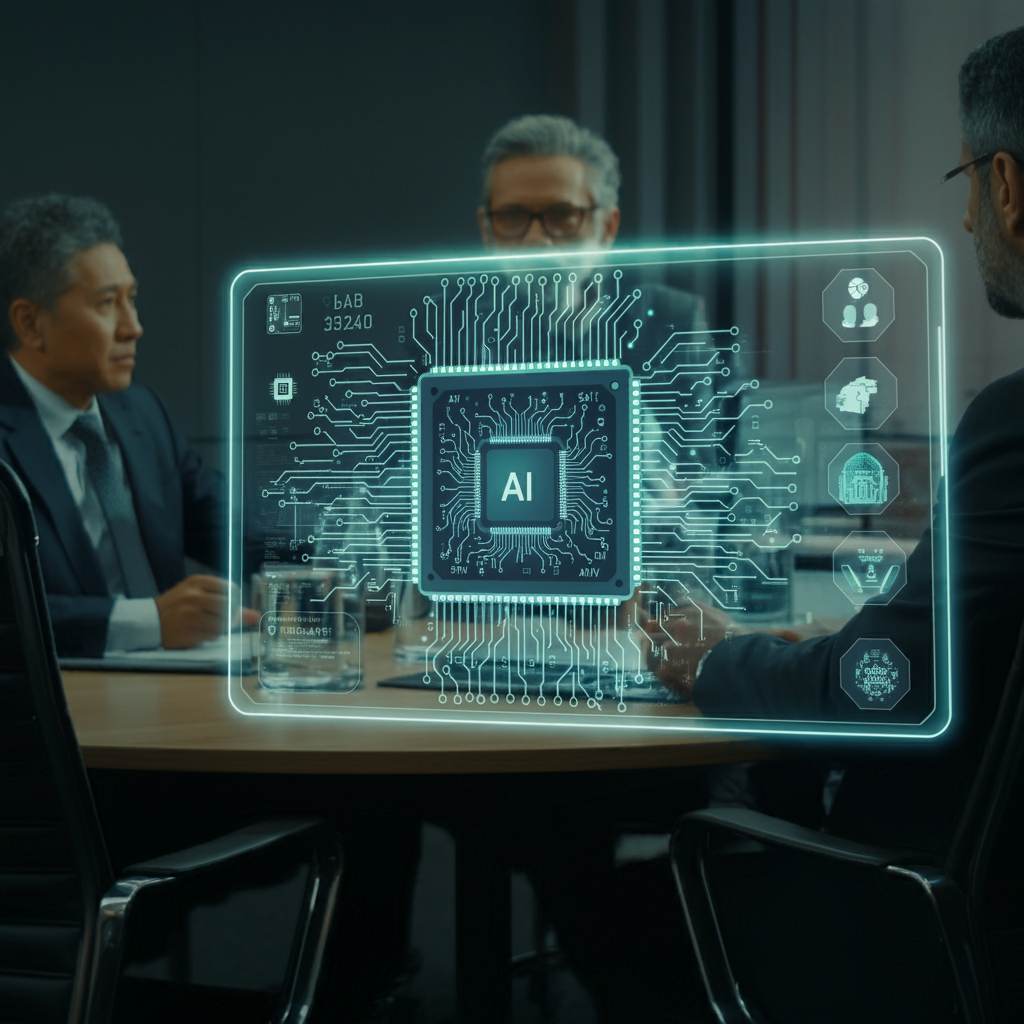Article by Dr. Ken Mutuma

In the ever-evolving landscape of corporate governance, the integration of Artificial Intelligence (AI) stands out as a transformative force. Traditionally, corporate governance has relied on human judgment, oversight, and regulatory frameworks to ensure transparency, accountability, and ethical practices within organizations. However, with the rapid advancements of AI technologies, new opportunities and challenges have emerged that AI is uniquely positioned to address.
Enhanced Decision Making:
AI algorithms excel in processing large amounts of data and identifying patterns that humans might overlook. In the realm of corporate governance, this capability enables more informed decision-making processes. Boards of directors and executives can leverage AI to analyze complex financial data, assess risk factors, and predict market trends with greater accuracy. By integrating AI-driven insights into their decision-making processes, organizations can potentially mitigate risks and optimize performance.
Real-time Monitoring and Compliance:
One of the critical challenges in corporate governance is ensuring compliance with regulatory requirements and internal policies. AI-powered systems can continuously monitor vast streams of data in real-time, flagging potential compliance breaches or anomalies. This proactive approach not only reduces the burden on compliance officers but also minimizes the risk of regulatory penalties and reputational damages.
Ethical Considerations and Bias Mitigation:
Ethical considerations in AI applications are important, especially in sensitive areas like corporate governance. AI algorithms must be designed and trained to uphold ethical standards, ensuring fairness and transparency in decision-making processes. Moreover, AI can help reduce biases that may influence human decisions, thereby promoting a more inclusive and equitable corporate culture.
Risk Management and Predictive Analytics:
Effective risk management is crucial for sustainable corporate governance. AI excels in predictive analysis, enabling organizations to anticipate potential risks before they escalate. By analyzing historical data and identifying patterns indicative of future risks, AI empowers decision-makers to implement preventive measures and safeguard the organization’s interests.
Challenges and Adoption Hurdles:
Despite AI transformative potential, its integration in corporate governance is not without challenges. Issues such as data privacy concerns, algorithmic transparency, and the ethical implications of AI decisions require careful consideration and regulatory oversight. Moreover, the adoption of AI technologies may necessitate upskilling employees and fostering a culture that embraces technological innovation while maintaining human oversight.
Looking Ahead: As AI continues to evolve, its role in corporate governance will likely expand. Organizations that embrace AI technologies responsibly and ethically stand to gain a competitive advantage in an increasingly complex global market. By harnessing the power of AI for enhanced decision-making, real-time monitoring, and proactive risk management, businesses can navigate challenges more effectively and drive sustainable growth.
In conclusion, while AI presents both opportunities and challenges in the realm of corporate governance, its potential to augment decision-making processes, improve compliance, and manage risks cannot be overstated. As organizations navigate the digital transformation journey, integrating AI responsibly promises to redefine corporate governance practices for the betterment of stakeholders, society, and the global economy.

